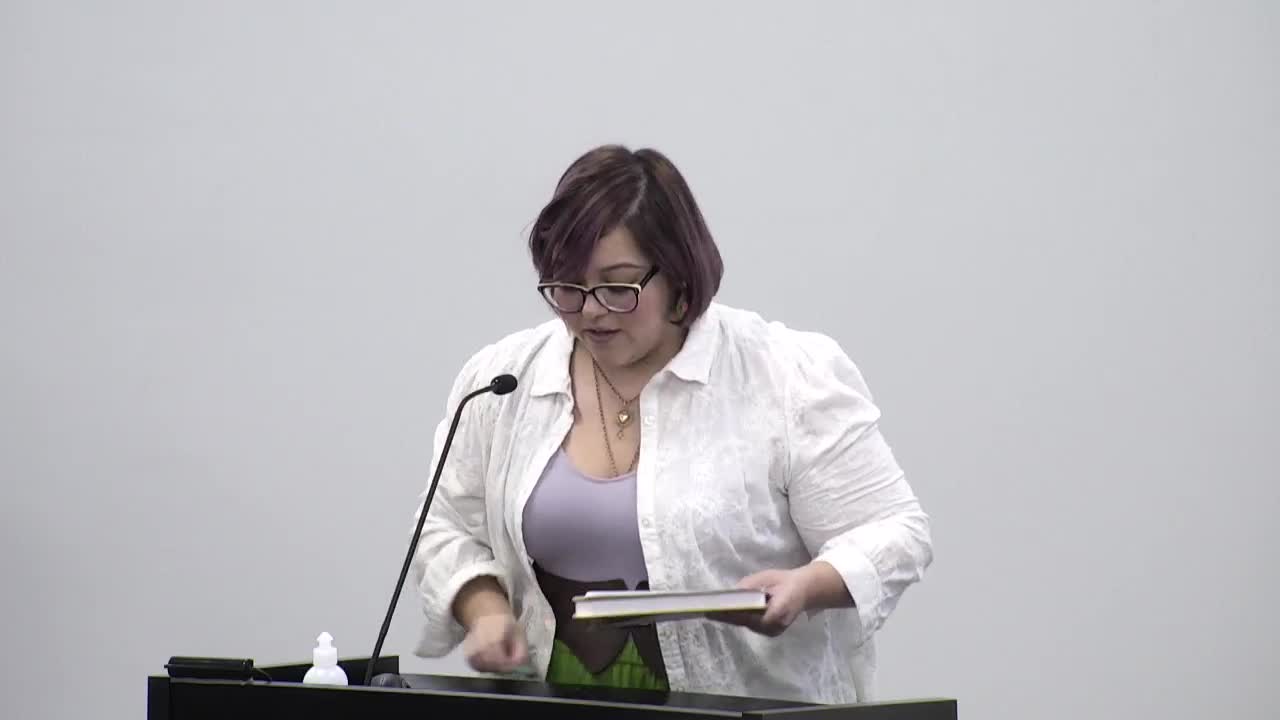Residents press San Patricio County on industrial growth plan, seek answers on water and health
Get AI-powered insights, summaries, and transcripts
Subscribe
Summary
San Patricio County Commissioners Court heard extended public comment and follow-up discussion about the county's proposed industrial growth plan, with residents pressing the court for clearer water planning, health studies and more public participation before adoption.
San Patricio County Commissioners Court heard extended public comment and follow-up discussion about the county's proposed industrial growth plan during its morning session. Community members raised concerns about water availability, air and chemical exposures, protection of wetlands and buffers, and the level of public engagement before the plan is adopted.
The most direct appeal came from Chloe Torres of Corpus Christi, who said, "I'm here to voice concerns about the San Pat industrial plan," and asked, "Where are we gonna get the water for all of this development?" Several other speakers cited health and environmental studies and urged the court to postpone action until residents had had more input.
Why it matters: speakers and some commissioners said the plan could affect drinking-water supplies, air quality, and neighborhoods bordering proposed industrial sites. Commenters repeatedly referenced the experience of Corpus Christi neighborhoods near refinery row as a cautionary example.
Speakers urged additional environmental review and public engagement. Patrick Nye of Coastal Watch called for a local health study and asked the court to help fund an initial phase, saying, in reference to a phased study, that "Dollars 60,000 will get off phase 1" to begin interviews and system setup. Katie Hatch of Ingleside On The Bay said, "The industrialization of San Patricio County has gone overboard," and asked the court to "review that map" to avoid repeating harms seen elsewhere. Jason Hale, who spoke in support of a master plan concept, recommended that the court adopt a more robust public-participation process and host a formally noticed public meeting with a second draft and a further comment period.
Other commenters asked the court to clarify maps and ownership of lands near the Intracoastal Waterway and requested wetland designations for areas between Ingleside On The Bay and industrial facilities. Mark Raspan, who said he has covered environmental issues in local media, urged the court to designate certain shoreline areas as protected wetlands and to preserve a narrow green-belt buffer he described as habitat for endangered species.
Court response and next steps: the court recessed briefly into executive session "under 551.071 consultation with attorney" and returned without taking immediate action. The presiding County Judge said the court would seek a public presentation from AECOM, the consultant that prepared the plan, and would publicize that session and a Q&A. The judge also said county staff would look into how the study was funded. At the meeting the judge stated that, to his knowledge, the county paid $150,000, the Port of Corpus Christi paid $75,000 and a group of industry partners contributed about $75,000 toward the contract, which a commenter said was for $299,163 and was approved on April 15, 2024.
No ordinance, zoning change or formal adoption of the plan occurred at the meeting. Commissioners said they are still reviewing the plan and legal questions about the county's authority, and they requested that AECOM present so the court and the public can get direct answers.
What remains unresolved: speakers and some commissioners asked for (1) clearer wetland and storm-surge mapping; (2) a publicly documented accounting of who funded the AECOM contract and how funds were received by the county; (3) a county-led or county-supported health study; and (4) a formal, widely publicized public-comment process before any final action.
The court closed the item by inviting AECOM to present to the Commissioners Court at a later date; no final vote or direction to adopt the plan was taken at this meeting.
